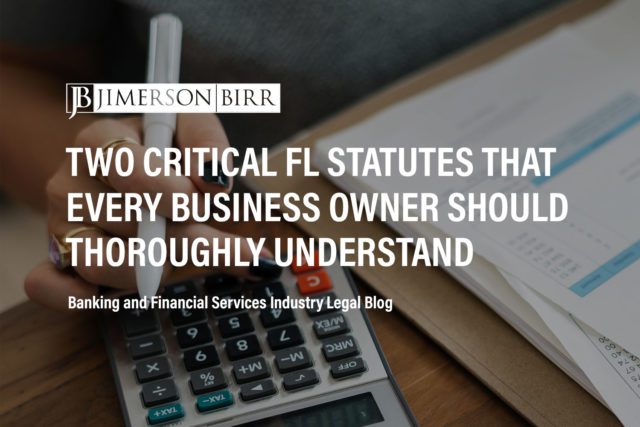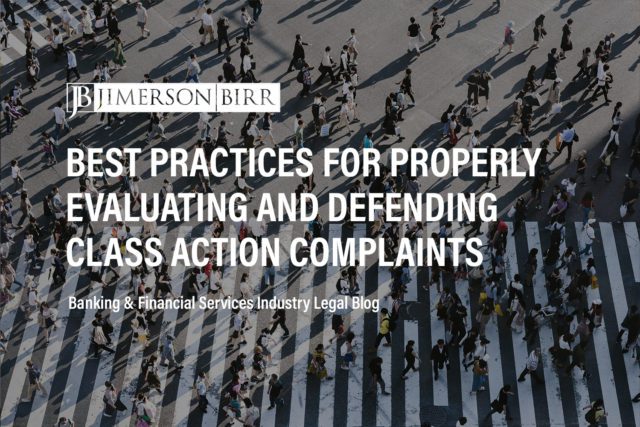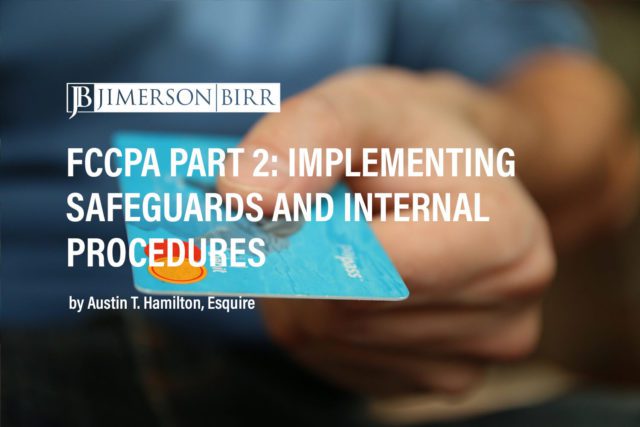What do challenging class certification and standing entail?
Challenging class certification involves disputing the legitimacy of the plaintiff’s proposed class while challenging standing pertains to questioning the plaintiff’s legal right to bring the suit on behalf of the class.
Need help defending against a class action? Schedule your consultation today with a top class action litigation defense attorney.
Which laws and regulations apply to challenging class certification and standing in Florida?
Florida and federal laws are crucial in utilizing class action litigation strategies to challenge class certification and standing. Florida’s class action statute, Section 768.734 of the Florida Statutes, provides the foundation for class actions in the state. At the same time, the Federal Rules of Civil Procedure (FRCP), specifically Rule 23, outlines the requirements and procedures for class actions in federal courts.
Additionally, relevant case law interpreting these statutes and rules offers guidance on effectively employing litigation strategies to challenge class certification and standing. For example, the United States Supreme Court’s decision in Wal-Mart Stores, Inc. v. Dukes, 564 U.S. 338 (2011) clarified the commonality requirement of Rule 23(a)(2), making it more difficult for plaintiffs to certify a class action in many circumstances.
In Florida, state court decisions interpreting Section 768.73 and its relationship with the FRCP also provide valuable insight into applying class action litigation strategies within the state’s jurisdiction.
What are the strategic benefits of challenging class certification and standing?
Utilizing class action litigation strategies to challenge class certification and standing in class action litigation defense matters offers the following strategic benefits:
- Cost reduction: Successfully challenging class certification can lead to the decertification of a class, which can significantly reduce the potential exposure and financial burden for the defendant. Defending individual claims may be less costly than defending a large class action lawsuit.
- Increased settlement leverage: By raising certification and standing issues, defendants may create uncertainty for the plaintiffs, leading to more favorable settlement terms. Moreover, the possibility of decertification can encourage plaintiffs to settle on more favorable terms to avoid the risk of losing the ability to proceed as a class action.
- Narrowing the lawsuit’s scope: Challenging class certification and standing can help defendants narrow the scope of the litigation by excluding specific claims or plaintiffs from the class.
- Highlighting individual issues: Successfully arguing that particular issues predominate over common issues can make it more difficult for the plaintiff to obtain class certification. In addition, this strategy forces the plaintiffs to litigate their claims individually, potentially making it more expensive and time-consuming for them to pursue their claims.
- Judicial scrutiny: By raising class certification and standing issues, defendants can encourage the court to examine the plaintiffs’ claims and legal theories closely. This heightened scrutiny can lead to dismissing specific claims or identifying weaknesses in the plaintiffs’ arguments that the defense can exploit.
- Preserving appellate rights: Challenging class certification and standing at the trial level can help preserve a defendant’s appellate rights. If the defendant loses on these issues at the trial level, they can raise them again on appeal, potentially resulting in a reversal or a new trial.
What steps should a class action defendant take to challenge class certification and standing successfully, and how will class action plaintiffs generally respond?
Class action defendants should follow these steps:
- Assess the legal basis for challenging certification and standing: Consult with legal counsel to evaluate the merits of challenging class certification and standing based on Florida and federal case law, statutes, and regulations.
- Investigate the class representative’s qualifications: Examine the plaintiff’s background, claims, and qualifications to determine if they are an appropriate representative for the class, as required by Florida and federal law.
- Identify individualized issues: Highlight differences among class members’ claims that could demonstrate individual issues predominate over common issues, making class certification inappropriate.
- Gather evidence to support arguments: Collect documentation, witness testimony, and other evidence to support the arguments against class certification and standing.
- File a motion to challenge certification and standing: Submit a well-reasoned motion outlining the legal and factual basis for opposing class certification and standing.
Class action plaintiffs typically focus on proving the following in response:
- Adequacy of representation: The class representative is suitable to represent the class and protect its interests.
- Commonality: Common questions of law or fact exist among class members, making class treatment appropriate.
- Predominance: Common issues predominate over individual issues, justifying class certification.
- Superiority: A class action is the most efficient and fair dispute resolution method.
When a set of facts is appropriate to meet the requirements of challenging class certification, there are many paths a claimant may take. We are value-based attorneys at Jimerson Birr, which means we look at each action with our clients from the point of view of costs and benefits while reducing liability. Then, based on our client’s objectives, we chart a path to seek appropriate remedies.
To determine whether a unique situation may necessitate litigation, please contact our office to set up your initial consultation.
Frequently Asked Questions
- What is the importance of challenging class certification and standing in Florida class action litigation defense?
Challenging class certification and standing can reduce potential exposure, increase settlement leverage, narrow the lawsuit’s scope, and encourage judicial scrutiny of the plaintiffs’ claims.
2. Can a defendant challenge class certification and standing at both the state and federal levels in Florida?
Yes, defendants can challenge class certification and standing in Florida state courts and federal courts, depending on the case’s jurisdiction.
3. What is the timeline for challenging class certification and standing in Florida class action litigation defense?
The timeline for challenging class certification and standing may vary depending on the court’s rules and the case’s specific circumstances. Consult with legal counsel for guidance on the appropriate deadlines in your case.
Have more questions about a class action defense-related situation?
Crucially, this overview of challenging class certification and standing does not begin to cover all the laws implicated by this issue or the factors that may compel the application of such laws. Every case is unique, and the laws can produce different outcomes depending on the individual circumstances.
Jimerson Birr attorneys guide our clients to help make informed decisions while ensuring their rights are respected and protected. Our lawyers are highly trained and experienced in the nuances of the law, so they can accurately interpret statutes and case law and holistically prepare individuals or companies for their legal endeavors. Through this intense personal investment and advocacy, our lawyers will help resolve the issue’s complicated legal problems efficiently and effectively.
Having a Jimerson Birr attorney on your side means securing a team of seasoned, multi-dimensional, cross-functional legal professionals. Whether it is a transaction, an operational issue, a regulatory challenge, or a contested legal predicament that may require court intervention, we remain a tireless advocate every step of the way. Being a value-added law firm means putting the client at the forefront of everything we do. We use our experience to help our clients navigate even the most complex problems and come out the other side triumphant.
If you want to understand your case, the merits of your claim or defense, potential monetary awards, or the amount of exposure you face, you should speak with a qualified Jimerson Birr lawyer. Our experienced team of attorneys is here to help. Call Jimerson Birr at (904) 389-0050 or use the contact form to set up a consultation.

We live by our 7 Superior Service Commitments
- Conferring Client-Defined Value
- Efficient and Cost-Effective
- Accessibility
- Delivering an Experience While Delivering Results
- Meaningful and Enduring Partnership
- Exceptional Communication Based Upon Listening
- Accountability to Goals











